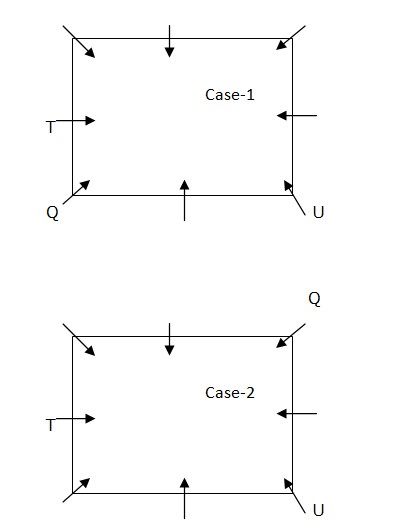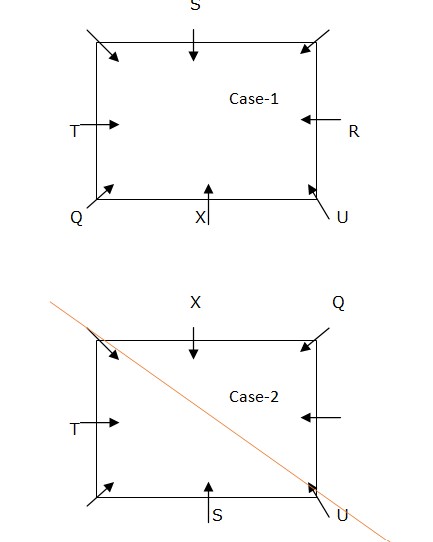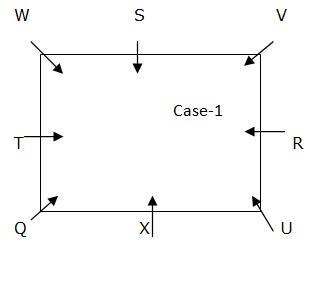Question
If the position of U and T are interchanged, then the
position of Q and U are interchanged, then who among the following person sits second to the right of U? Study the following information carefully and answer the below questions Eight persons- Q, R, S, T, U, V, W and X are sitting around the square table facing the centre. Four of them sit in the corner and four of them sit in the middle of the sides of the table, but not necessarily in the same order. T sits third to the left of U. One person sits between U and Q who sits at the corner of the table. S and X sit opposite to each other. S is not an immediate neighbour of Q.R sits second to the left of S.W sits second to the right of V.Solution
T sits third to the left of U. One person sits between U and Q who sits at the corner of the table. From the above condition, there are two possibilities.  S and X sit opposite to each other. S is not an immediate neighbour of Q. R sits second to the left of S. From the above condition, case2 gets eliminated.
S and X sit opposite to each other. S is not an immediate neighbour of Q. R sits second to the left of S. From the above condition, case2 gets eliminated.  Again we have, W sits second to the right of V. From the above condition, case1 shows the final arrangement.
Again we have, W sits second to the right of V. From the above condition, case1 shows the final arrangement. 
How many meaningful four-letter words can be formed using the 1st, 3rd, 8th, and 10th letters of the word 'COMPLICATION'?
Find which one of the given words cannot be made from the letters of the given word.
‘ CONGLOMORATE ’
...In the following question, find which one word cannot be made from the letters of the given word “CONTROVERSIAL”
In the following question, select the word which can be formed using the letters of the given word 'INTRODUCTION'.
If it is possible to make a four letter meaningful word from 4th, 5th, 7th and 8th letters of the word ‘ R...
In the following question, find which one word cannot be made from the letters of the given word “TRANSGENDER”
Which among the following words can be formed using the letters of the given word only once?
PLACEMENT
Find which one of the given words cannot be made from the letters of the given word ‘ DRAINAGE ’.
Find which one of the given words cannot be formed from the letters of the given word.
‘ STAGGERING ’
...Find which one of the given words cannot be made from the letters of the given word ‘ ENVISAGE ’ .
...
Relevant for Exams:


